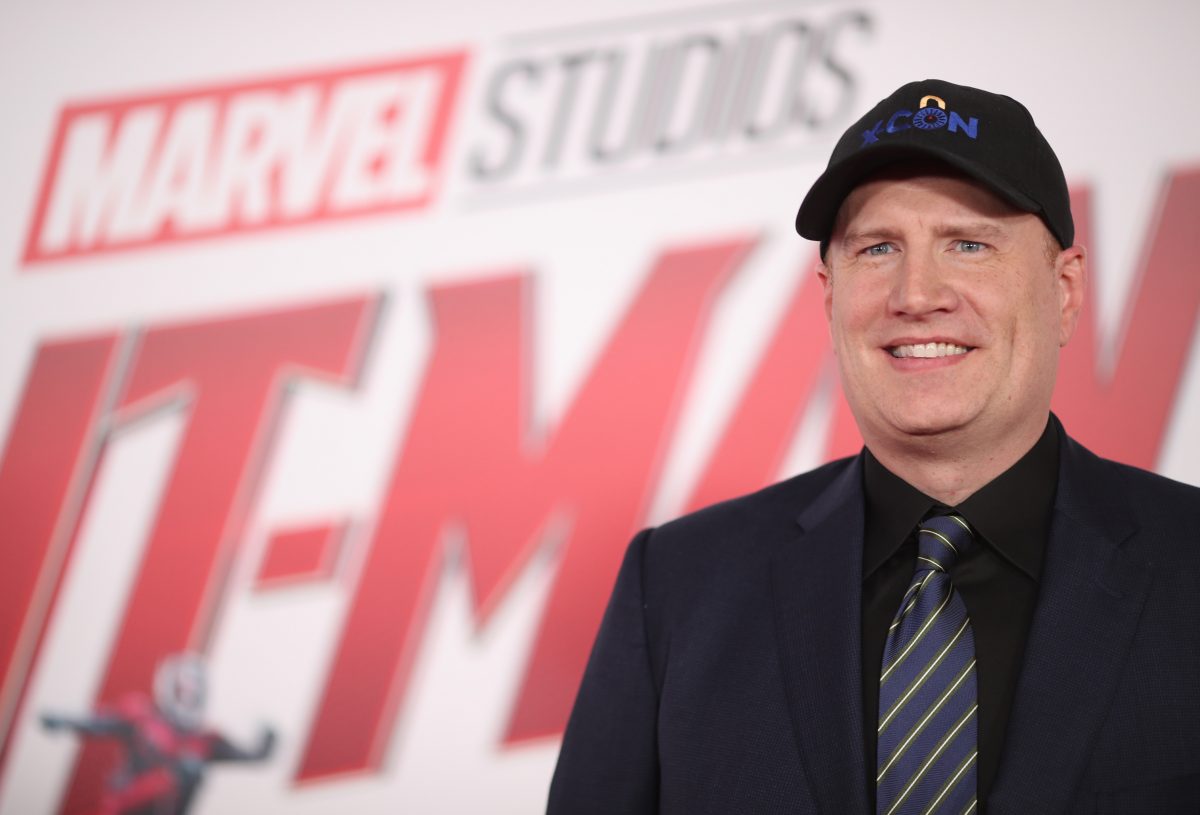Kevin Feige Discusses Diversity and Marvel’s Upcoming Streaming Series
The Marvel CEO was part of a producer's roundtable talk.


Marvel CEO Kevin Feige joined fellow producers for a roundtable panel discussion on their work in film and television. During the chat, Feige discussed juggling the ever-growing slate of Marvel projects, as well as the studio’s upcoming series on Disney’s streaming channel. While Marvel’s presence on Netflix has shrunk with the dual cancellation of Luke Cage and Iron Fist, the company is moving ahead with standalone series for Loki (Tom Hiddleston), Scarlet Witch (Elizabeth Olson), and an eagerly anticipated buddy series with Falcon (Anthony Mackie) and the Winter Soldier (Sebastian Stan).
Feige said of the new spin-off series, “We are going to tell stories for the streaming service that we wouldn’t be able to tell in a theatrical experience — a longer-form narrative, that’s what comics are, it’s about as longform a narrative as exists. But also maintaining that theatrical experience, which is our bread and butter, and the lines around the block, if you’re lucky.”
The Marvel chief also discussed the importance of representation, especially with regards to the massive success of Black Panther. He said,
“Black Panther is not real, he is not a real person, but — He represents real hopes and real dreams and real representation. And so there is a certain amount of pressure that came with that, delivering on what people had been dreaming about for years, whether they read the comic book or not. Because a lot of people said “Wait a minute, this is a hero that looks like me,” and the importance of that really can’t be understated. People get so excited to see themselves on that big screen, and you take that very, very seriously.”
Feige also touched on the importance of diversity both in front of and behind the camera, adding that “If you’re in a position of power and you’re the one doing the hiring, we have learned — on our last number of movies and a number of movies that haven’t come out or haven’t been announced — that the more diverse the group of people around the table, the better the movie.”
Feige was talking specifically about Black Panther director Ryan Coogler, who brought crew members to the film that he had worked with on more independent productions, like his debut film Fruitvale Station. Bringing them onto a large scale project like Black Panther offers a huge career boost and access that would otherwise be denied to marginalized industry employees.
Feige’s reponse on the necessity of inclusion riders was a little less enthusiastic. The term, made popular in Frances McDormand’s Oscar acceptance speech, is a mandate (usually laid down by an A-list actor or director) that requires a certain level of diversity both in front of and behind the camera. It’s an easy way to promote inclusion and one that, frankly, all studios should be supporting. Feige said of the riders, “Well, one question really is: Should people be forced to do it? And maybe the answer is yes, maybe the answer is no.”
While Marvel has already committed to more diverse stories, it would send a big message to the film industry of one of the biggest, most profitable studios enacted an across-the-board commitment to inclusivity. Come on, Marvel. What have you got to lose?
(via Hollywood Reporter, image: Christopher Polk/Getty Images)
Want more stories like this? Become a subscriber and support the site!
—The Mary Sue has a strict comment policy that forbids, but is not limited to, personal insults toward anyone, hate speech, and trolling.—
Have a tip we should know? [email protected]
